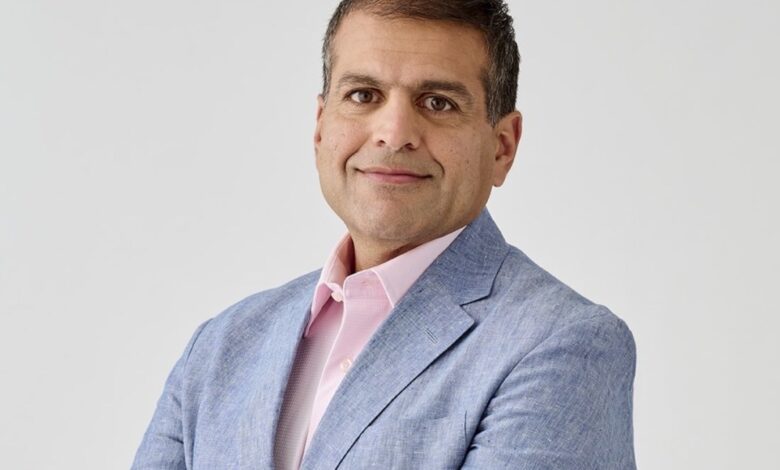How ServiceNow is infusing AI everywhere and got 84% of the workforce to use it daily

ServiceNow is betting big on generative artificial intelligence to drastically change the software it sells and the people who sell it.
“We’re infusing AI all over the place internally,” says Chief Customer Officer Chris Bedi, who says the company has put more than 25 generative AI use cases into production. “We have to transform our company just like every company on the planet.”
To get the business up to speed, ServiceNow mandated that every department needed to develop an AI roadmap. Pilots were conducted last year and generative AI has since been infused into every workplace function ranging from software engineering, HR, customer service, marketing, sales, and financing. Bedi says everyone at ServiceNow is using generative AI today and 84% of the company’s workforce is using the technology daily.
When asked to quantify the scale of impact for each of these use cases, Bedi says, “if they were unimportant, we’d kill them.” But he shares some ballpark numbers: Around eight to ten are considered high impact, five are medium, and the rest are lower impact.
ServiceNow, which sells cloud-based software that helps businesses manage their workflows, says the AI investments are already paying off with meaningful gains to ease workloads. After just four months, generative AI was doing the work equivalent to 50 full-time employees on an annualized basis. For software engineers, their performance improvement ranged from 5% to 8%. Employees experienced a 10% net reduction of the work coming into the customer support call center.
That’s a lot of change to manage quickly. Bedi says it is on leadership to set the tone from the top. “This is not replacing your job,” he says. “This helps you do a job better and reduces a lot of manual toil you have to do. Quite frankly, you can do a more interesting job.”
And even Bedi’s own role at ServiceNow has evolved amid the AI boom. Since September 2015, he had held the role of chief digital information officer, serving as customer zero for ServiceNow’s various products. But as Bedi began to spend increasing amounts of time with chief information officers and helping them work with AI, he took on the new role in May.
“We decided to let me spend 100% of my time with customers to make sure they are getting the most out of the platform,” says Bedi, who handed over the CDIO reins to Kellie Romack, ServiceNow’s SVP of digital technology.
The ascendance of AI helped ServiceNow leap into the Fortune 500 for the first time in 2023. Last month, the company announced a bunch of new generative AI capabilities, including the integration of two generative AI assistants, ServiceNow Now Assist and Microsoft Copilot, that would allow users in Microsoft Teams to ask workplace questions to Now Assist.
But ServiceNow has also asked Wall Street for patience before it sees a lift to the top line from the new generative AI products. Even after launching a bunch of new generative AI tools, ServiceNow stuck with a prior 2026 sales outlook of $15 billion in subscription revenue.
Bedi believes that when we look back on this moment in time, some of the generative AI use cases that businesses pursued will look comically simple. “If you zoom out and fast forward 12 to 18 months, it’s going to become unthinkable for people not to have gen AI infused in their work,” Bedi says.
Offloading work to the machines can help companies like ServiceNow manage costs, but Bedi says it is just as important to measure the sentiment of ServiceNow’s employees. When the company rolled out generative AI summarization tools to help make customer service agents more efficient, the company asked: Is this useful for you? Around 70% said yes.
“And so to me, that’s a really good sign,” says Bedi, adding that when new technologies are rolled out, employees can be resistant. “With gen AI, people are actually running to it.”
John Kell
Send thoughts or suggestions to CIO Intelligence here.
NEWS PACKETS
Spending on AI infrastructure may mean fewer dollars for software. A wave of industry spending on chips and data centers to power generative AI is taking priority over corporate spending on AI software from firms like Salesforce and Workday, The Wall Street Journal reports. Businesses will eventually invest in cloud AI services, but that phase of the AI investment cycle is still a few quarters out, the report says, quoting Wall Street analyst Dan Ives. Following the March earnings quarter, of the 10 largest cloud software providers by annual revenue, WSJ reports eight saw their stocks drop by an average of 9% the day following their earnings reports.
Data breaches expand beyond Live Nation’s Ticketmaster. Snowflake has said hackers were targeting some of the cloud storage firm’s customers’ accounts and attempting to steal customer data for those that didn’t have multifactor authentication. As companies including Live Nation and Advanced Auto Parts investigate potential breaches, Snowflake has been encouraging clients to impose stronger security controls. The list of those impacted by the data theft may soon grow, as security firm Mandiant and Snowflake have notified at least 165 Snowflake customers that they may have been compromised. Mandiant also said there was no evidence that Snowflake’s enterprise environment was breached.
Apple unveils AI plans, draws ire from Elon Musk. Billionaire Elon Musk blasted the Apple iPhone’s integration of ChatGPT as “creepy spyware” and vowed to ban the devices from his companies (Tesla, X, SpaceX, etc) unless Apple reverses course. Whether the newly-announced Apple-OpenAI integration actually presents the security risk Musk suggests is up for debate. Apple said that iPhone users have the final say on what data they share with the OpenAI — If Siri thinks ChatGPT can help, it will ask permission to share the question and present the answer directly from the chatbot. (It’s also worth noting that Musk, who cofounded OpenAI but left in 2018, is embroiled in a long running feud with the company and has even launched a rival AI firm called X.AI).
ADOPTION CURVE
A challenging view. More than half of executives “agree” or “strongly agree” that they are behind the competition in adopting new technologies, a new survey of 673 U.S. executives from PwC shows, up from 48% in August 2023. Costs are the top internal challenge that may be preventing companies’ efforts to reinvent their business, followed by changes to the operating model to support a company’s new vision and achieving measurable value from adopting new technologies.
The top three concerns are all linked to AI. CIOs, CFOs, and other C-suite leaders are still sorting out where to best deploy the fast-evolving tech without overspending, and how to prove a return on investment when they spend millions to infuse AI to their business. “Tech transformations can be costly, complex initiatives, and the data shows that companies continue to struggle with unlocking real value from them,” says PwC.
JOBS RADAR
Hiring:
– Comcast, a telecommunications and media giant, is seeking a Field CTO based in Pennsylvania. Posted salary range: $141.6K to $331.8K/year.
– Dine Brands Global, the operator of chains including Applebee’s and IHOP, is seeking a Director of Restaurant Technology based in Pasadena, California. Posted salary range: $180K/year.
Hired:
– Framestore Company 3 has appointed Lincoln Wallen as CTO, joining the Academy Award winning visual effects company to find and facilitate new strategic partnerships across business, tech, and academia. Wallen most recently served as CTO at U.K.-based software firm Improbable.
– HomeTrust Bancshares announced that Charles “Chuck” Sivley assumed the position of CTO and will have primary responsibility for developing the technical direction and strategy for the North Carolina-based bank. Prior to joining HomeTrust, Sivley has served as CIO at American National Bank, Highlands Union Bank, and First State Bank of the Southeast.
– Tekion announced Binu Mathew as CTO, where he will steer the cloud technology company’s strategy, product development, and ensure the integration of AI, data science, and digital innovations. Mathew previously was a SVP at C3 AI and held leadership roles at Baker Hughes and Oracle.
– Zhihu appointed Bin Sun as CTO, effective immediately, following the resignation of Dahai Li who resigned to become CEO of tech startup Modelbest. Prior to joining the China-based Q&A forum, Sun held various leadership, product, and engineering roles at Microsoft, Yahoo, iQIYI, and Perfect World.
– Abstract Security has named Stefan Zier as CTO, bringing over two decades of experience, most recently working at Stripe. Zier was also a founding team member and chief architect at Sumo Logic.
– PulPac has appointed Charlotte Walldal as CTO, after she most recently served as global R&D director for XVIVO. Walldal will help develop and expand PulPac’s dry molded fiber technology, which aims to offer more sustainable alternatives to single-use plastics.



